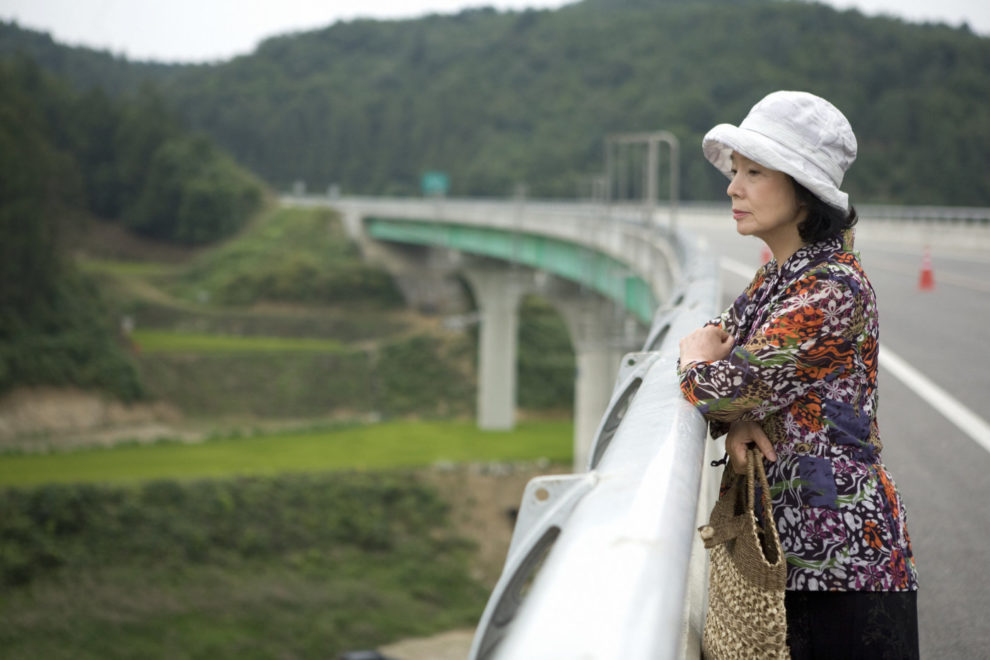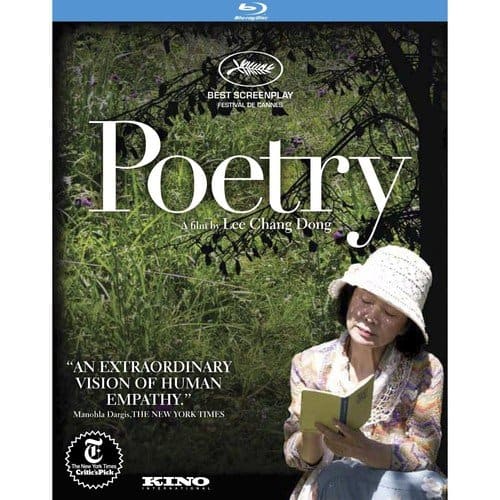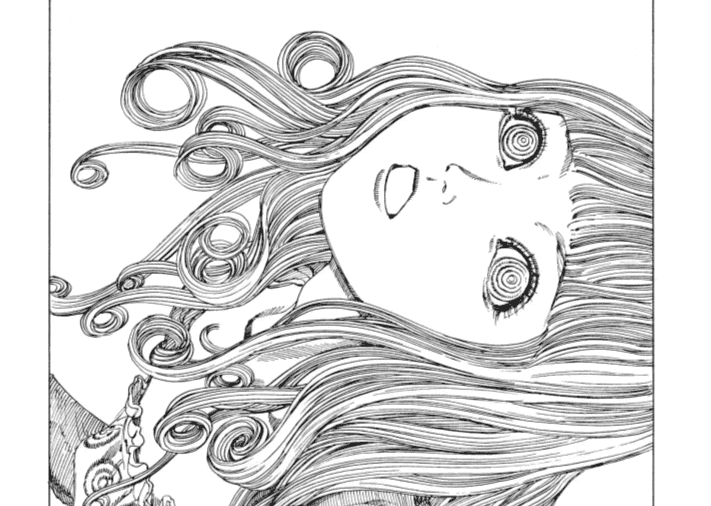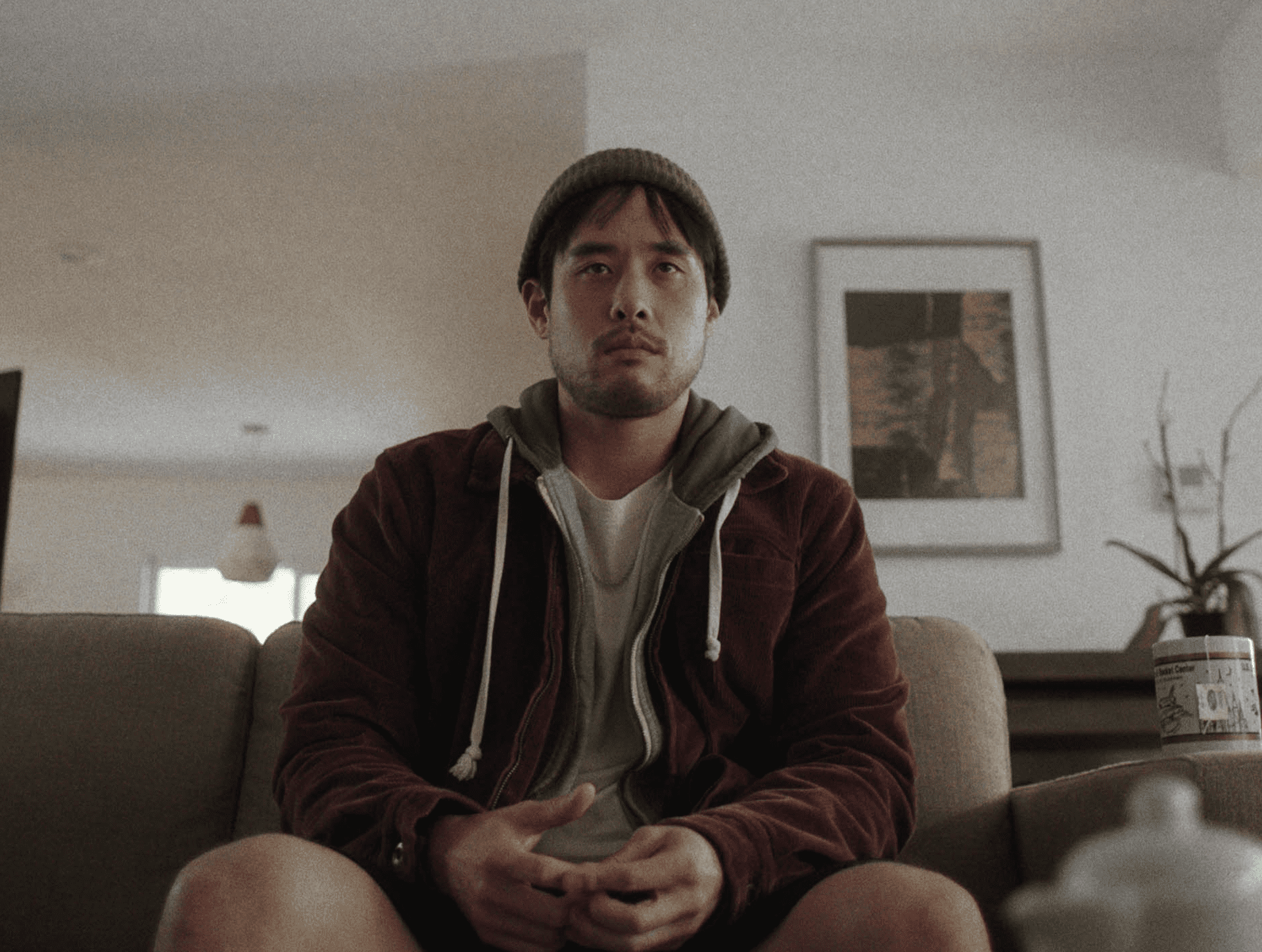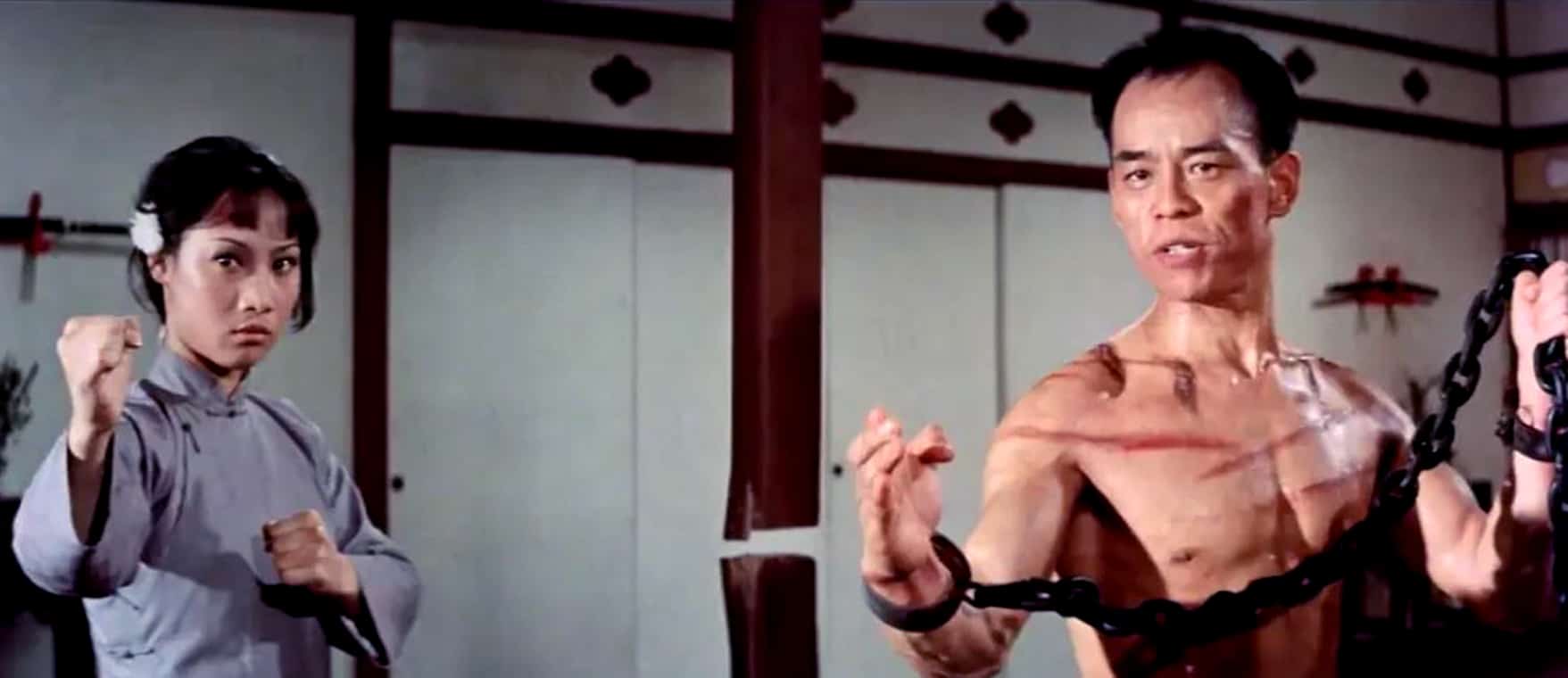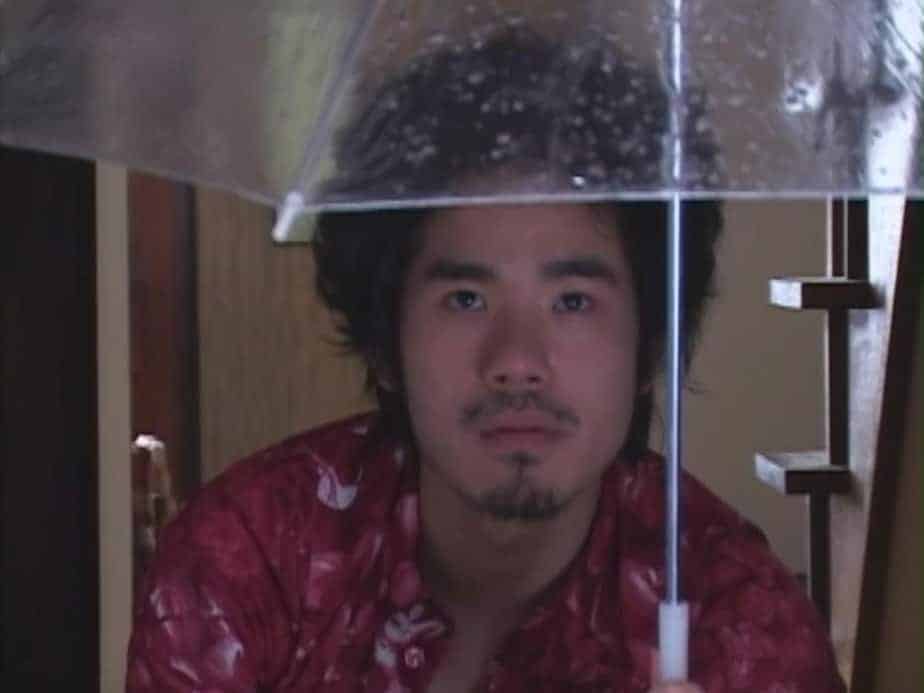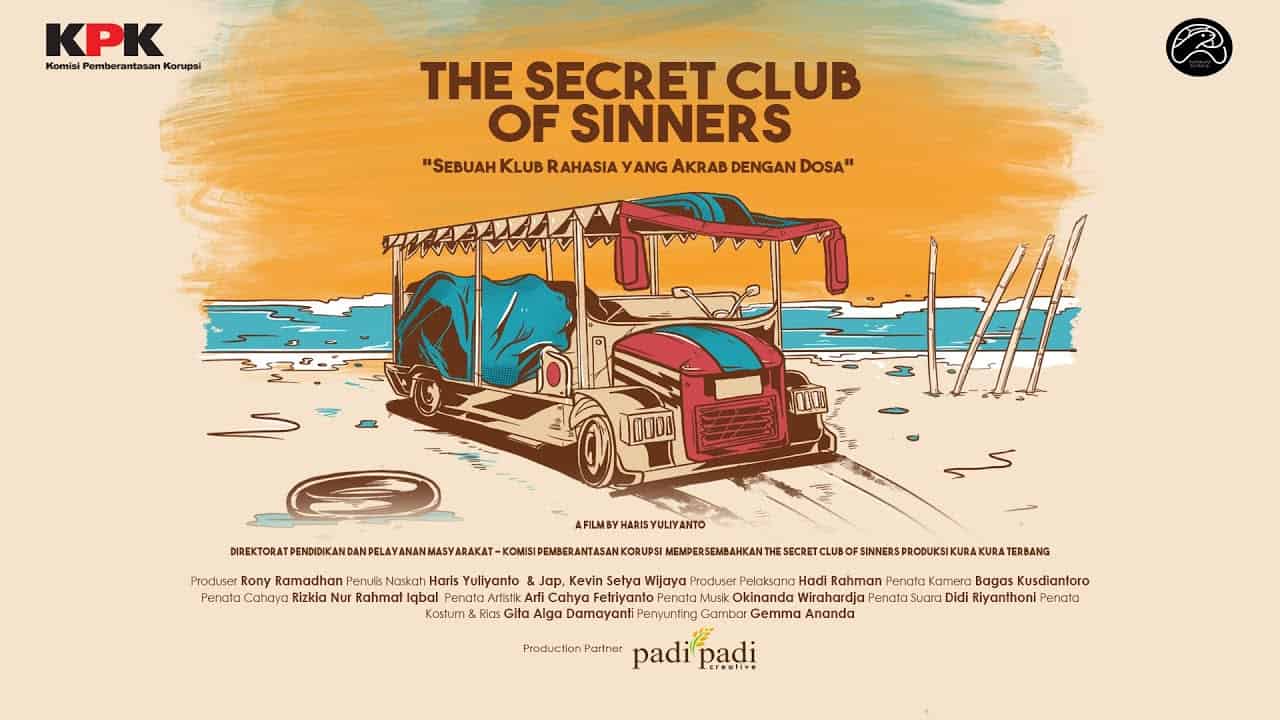“Poetry”, similarly to Lee Chang-dong's most recent offering, “Burning”, has a lot more to offer than one might assume at face value. It's a study of loneliness, ageing, and, simply put, leaving the world whilst simultaneously making peace with it. But also, it proves to be a meta-commentary on the mission of an artist, with the protagonist being a sort of porte-parole for Lee himself.
Buy This Title
As always in his works, the director tells a story of an underdog and outcast. Yang Mi-ja (Yun Jeong-hie, a rather forgotten actress whose output was most prolific in the 70s) is in her seventies, but still has a lot to carry on her back. Tasked with raising her daughter's son, Jong Wook (Lee Da-wit) and also facing an onset of dementia, she decides to do something creative (perhaps as a means of escapism?) and signs up for a poetry writing class.
The poetry and Yang's status as an artist serve as something deeper rather than a simple plot device. For the protagonist writing anything turns out to be a real challenge. Worried that she wasn't gifted with any sort of literary talent, she starts to doubt whether she could produce anything. Her teacher's response to that sentiment is the moral focal point of Lee's film. In one of the classes he claims: “It is not difficult to write a poem, but to have a heart to write one”. Ie. art in itself isn't difficult, but being an honest and correct in ethical judgment artist is.
Yang is indeed presented with an overwhelming moral dilemma. Her grandson turns out to be one of the five boys who raped their class colleague and led her to a suicide. The boys' parents have cooked up a plan to prevent them from a court dispute and provide for the smooth sailing of their children onto the future. All that needs to be done is to accumulate money and settle with the dead girl's mother to literally pay off her grief and any sorts of legal sentiments. Should Yang settle, or rather, should justice be served the proper way without any bypasses?
Lee Chang-dong's love for that sort of dilemmas has been demonstrated earlier, for example in “Oasis”. In “Poetry” he focuses again on the issues of power and money, as well as class divisions, to highlight flaws of modern Korean society in which, with sufficient funds, everything can be bought. The movie's critique isn't as piercing though. This manifests in the middle when the film loses its pace as well as its focus. Despite the boring second act, the story in itself is an intricate work, full of details, symbolism and small scenes that allow for a layered interpretation.
In the latest film, the director again demonstrates his unique visual style, with various meticulously composed frames and usage of depth-of-field, courtesy of cinematographer Kim Hyun-seok. Long takes also contribute to the depiction of mental landscape of the protagonist. Her serenity (or lack thereof) are mirrored by the pace of editing. The performance from Yun Jeong-hie is also one worth looking at. Her vintage elegance allows the actress to create a complex character, who seems both childish and insecure, as well as mature and dominant. This contrasting depiction of an elderly woman facing the tumultuous reality of modern Korea is the film's strongest element.

“Poetry” proves to be another fascinating character study from Lee Chang-dong in which the director exercises command of a moving story, as well as the restrained, but also beautiful, mise-en-scene. Family dramas only get as good as this one.


